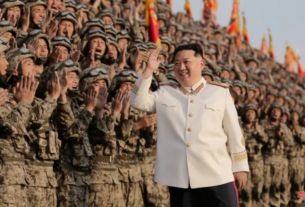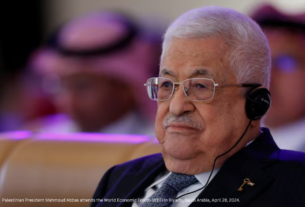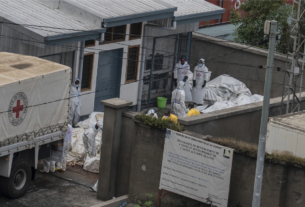A mechanical problem forced U.S. Secretary of State Marco Rubio’s plane to return to Washington, D.C., ahead of a scheduled diplomatic trip to Europe. The aircraft, carrying Rubio and senior officials, experienced technical difficulties shortly after takeoff. The incident delayed his meetings with European leaders on security and trade.
“We had to turn back for safety reasons,” a State Department spokesperson said. The plane’s crew detected an issue mid-flight and followed emergency protocols. Officials have not disclosed the exact nature of the problem.
Rubio was scheduled to visit Germany, France, and Poland. His agenda included discussions on NATO security, economic ties, and the ongoing war in Ukraine. The trip was seen as a key moment in strengthening U.S.-Europe relations.
The mechanical failure occurred shortly after takeoff from Joint Base Andrews. The pilot decided to return rather than risk continuing the flight. Officials have said there were no injuries or immediate danger to those onboard.
State Department representatives are working to reschedule the meetings. European officials have expressed understanding about the delay. Rubio is expected to continue his trip once alternative travel arrangements are made.
“These meetings are important, and we will make them happen,” a senior official said. Discussions with European leaders are expected to cover military aid to Ukraine. Trade agreements and energy security are also on the agenda.
The war in Ukraine remains a top priority for U.S. foreign policy. Rubio has been vocal about increasing support for Kyiv. The trip was meant to reassure European allies of continued U.S. commitment.
NATO has been strengthening its defenses in response to Russian aggression. The alliance has increased troop deployments in Eastern Europe. U.S. officials have pushed for more military and financial assistance to Ukraine.
The delay raises questions about U.S. diplomatic readiness. Some analysts say travel disruptions can affect negotiations. However, officials insist that the trip’s goals remain unchanged.
Rubio has been leading efforts to maintain strong transatlantic relations. His visit was expected to reinforce partnerships with key allies. Rescheduling his meetings will be a priority for the State Department.
Aviation experts say mechanical issues are common in government aircraft. The U.S. operates a fleet of planes for high-level officials. Safety protocols require immediate action if problems arise.
“The aircraft crew made the right call,” a former aviation official said. Ensuring passenger safety is always the top priority. The incident highlights the challenges of government travel logistics.
Some critics argue that outdated aircraft could pose risks. Government officials frequently rely on aging planes. Maintenance and upgrades remain ongoing concerns for military and diplomatic flights.
Rubio has not commented directly on the issue. His team has focused on ensuring the trip proceeds as planned. European leaders are waiting for an updated schedule.
The U.S. has played a key role in global security discussions. Rubio’s meetings were set to cover intelligence-sharing and defense cooperation. The delay means these discussions will need to be rearranged.
State Department officials are working on alternative transportation. Commercial flights or military aircraft could be options. Ensuring the trip continues is a top priority.
The incident will not change the U.S. stance on NATO or Ukraine. Officials say diplomatic efforts will continue as planned. Rubio’s trip is expected to resume within days.
Despite the setback, the Secretary of State remains focused on his mission. His meetings with European leaders will still take place. The delay is a logistical challenge but not a policy shift.
The plane’s mechanical issue is under investigation. Aviation teams are conducting safety checks before further flights. Ensuring secure travel for top officials remains a priority.
For now, Rubio remains in Washington, D.C. His team is coordinating new travel plans. The U.S. government is determined to keep diplomatic efforts on track.




